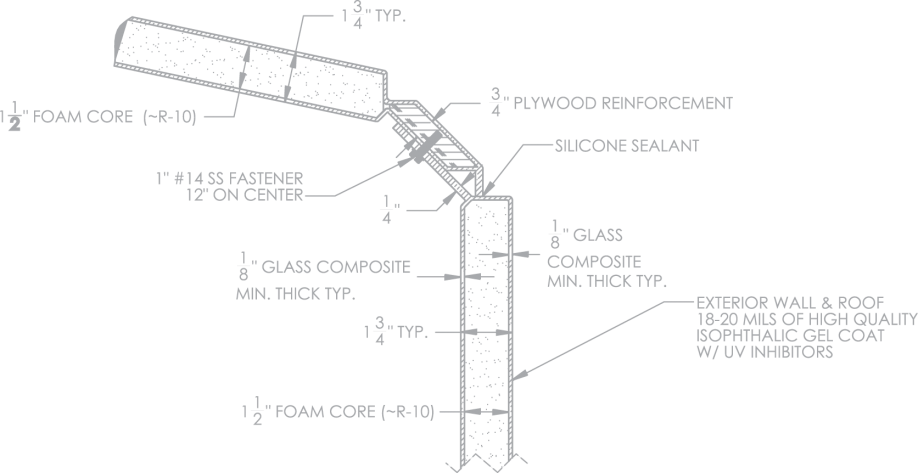Exactly How Composites are Altering the Landscape of Building Materials
Exactly How Composites are Altering the Landscape of Building Materials
Blog Article
Discovering the Uses and Advantages of Recycled Composites in Modern Industries
The combinations of recycled products with innovative composite modern technologies offers a promising avenue for improving sustainability, strength, and cost-efficiency throughout different industries. As industries look for ingenious solutions to attend to environmental problems and improve operational efficiencies, the unification of recycled composites arises as a compelling choice.
Ecological Advantages of Recycled Composites
The utilization of recycled composites in modern markets provides considerable environmental advantages, contributing to the decrease of waste and the preservation of natural sources. By integrating recycled composites into producing processes, sectors can decrease their dependence on virgin materials, thus reducing the amount of waste generated and the energy needed for extraction and manufacturing. This shift towards utilizing recycled compounds assists in diverting products from landfills, relieving the worry on waste administration systems, and reducing greenhouse gas discharges connected with conventional manufacturing practices.
Furthermore, the use of recycled composites advertises the conservation of all-natural resources such as hardwood, minerals, and water, which are usually diminished via the removal and handling of resources (composites). By extending the lifespan of materials with recycling, industries can aid preserve communities and biodiversity by lowering the demand for brand-new resources. On the whole, the fostering of recycled compounds in modern industries plays an essential function in advertising sustainability and mitigating the ecological effect of production procedures
Improved Sturdiness in Product Production
With a concentrate on longevity and effectiveness, including recycled composites right into product manufacturing procedures boosts sturdiness and sustainability. By using recycled compounds, manufacturers can create items that are not just solid yet additionally immune to deterioration, making them ideal for long-term usage in different sectors. The mix of various materials in recycled composites can commonly lead to enhanced toughness and longevity compared to conventional products, giving a cost-efficient solution for generating durable products.
Among the key benefits of making use of recycled compounds in item manufacturing is the capacity to customize the material residential or commercial properties to fulfill certain durability needs. By adjusting the structure and manufacturing techniques, producers can customize the recycled composites to endure extreme ecological conditions, heavy loads, or frequent usage without jeopardizing on efficiency. This versatility in layout and production permits the development of very resilient items that preserve their stability gradually, reducing the need for frequent replacements and eventually adding to a much more sustainable manufacturing process.
Cost-Effectiveness and Financial Benefits
Integrating recycled compounds right into product manufacturing not just boosts sturdiness and sustainability yet also provides significant cost-effectiveness and financial benefits. Making use of recycled composites can result in minimized product expenses as recycled products are typically more economical than virgin materials. In addition, recycling composite materials can lower garbage disposal expenses and lower the need for garbage dump space, adding to overall cost savings for markets.

Development and Design Adaptability With Recycled Composites
Utilizing recycled compounds in contemporary industries supplies unmatched chances for advancement and design adaptability. By integrating recycled materials right into composite manufacturing processes, firms can press the limits of conventional layout restrictions and explore brand-new possibilities. The versatility of recycled composites enables the production of intricate shapes and frameworks that might not be possible with traditional materials.
Among the key benefits of recycled compounds is their capability to be built right into various types, offering designers the liberty to trying out special shapes and sizes. composites. This adaptability opens up a globe of creative opportunities, making it possible for the advancement of light-weight yet durable products that fulfill the details requirements of various markets
In addition, using recycled compounds promotes lasting practices and supports the round economic situation by decreasing waste and decreasing the environmental effect of making processes. This concentrate on green design remedies aligns with the growing pattern in the direction of sustainability in modern-day industries, making recycled composites a useful source for forward-thinking and innovative business.
Applications Throughout Numerous Industries
Recycled composites find impactful and varied applications across a vast range of sectors due to their one-of-a-kind buildings and sustainability benefits. The aerospace sector advantages from recycled compounds in the production of airplane parts, where the products' strength-to-weight ratio is critical for making certain safety and efficiency. The versatility and sustainability of try this recycled composites make them beneficial across different industries, driving development and ecological stewardship.
Conclusion
Finally, the usage of recycled compounds in modern industries uses substantial environmental benefits, boosted sturdiness in item production, cost-effectiveness, and economic advantages. The use of recycled composites allows for development and style adaptability across various markets. Generally, the fostering of recycled compounds offers a lasting and useful service for satisfying the requirements of the market while also decreasing environmental impact.

One of the key benefits of using recycled compounds in product manufacturing is the capacity to tailor the material buildings to fulfill particular resilience requirements. Using recycled composites can lead to reduced product expenses as recycled products are commonly less pricey than virgin products. The aerospace industry advantages from recycled composites in the manufacturing of aircraft website here components, where the materials' strength-to-weight proportion is important for guaranteeing safety and security and performance.
Report this page